Filter by

Skin, Kin and Clan: The dynamics of social categories in Indigenous Australia
Australia is unique in the world for its diverse and interlocking systems of Indigenous social organisation. On no other continent do we see such an array of complex and contrasting social arrangements, coordinated through a principle of ‘universal kinship’ whereby two strangers meeting for the first time can recognise one another as kin. For some time, Australian kinship studies suffered f…
- Edition
- -
- ISBN/ISSN
- 9781760461638
- Collation
- -
- Series Title
- -
- Call Number
- 301 SKI s

Sinuous Objects: Revaluing Women’s Wealth in the Contemporary Pacific
Some 40 years ago, Pacific anthropology was dominated by debates about ‘women’s wealth’. These exchanges were generated by Annette Weiner’s (1976) critical reappraisal of Bronisław Malinowski’s classic work on the Trobriand Islands, and her observations that women’s production of ‘wealth’ (banana leaf bundles and skirts) for elaborate transactions in mortuary rituals occupied a…
- Edition
- -
- ISBN/ISSN
- -
- Collation
- -
- Series Title
- -
- Call Number
- 300 SIN s

The Promise of Prosperity: Visions of the Future in Timor-Leste
For the people of Timor-Leste, independence promised a fundamental transformation from foreign occupation to self-rule, from brutality to respect for basic rights, and from poverty to prosperity. In the eyes of the country’s political leaders, revenue from the country’s oil and gas reserves is the means by which that transformation could be effected. Over the past decade, they have formulat…
- Edition
- -
- ISBN/ISSN
- 9781760462529
- Collation
- -
- Series Title
- -
- Call Number
- 301 PRO p
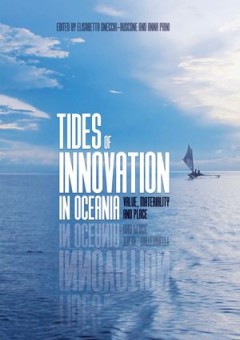
Tides of Innovation in Oceania Value, materiality and place
Tides of Innovation in Oceania is directly inspired by Epeli Hau‘ofa’s vision of the Pacific as a ‘Sea of Islands’; the image of tides recalls the cyclical movement of waves, with its unpredictable consequences. The authors propose tides of innovation as a fluid concept, unbound and open to many directions. This perspective is explored through ethnographic case studies centred on deeply…
- Edition
- -
- ISBN/ISSN
- 9781760460921
- Collation
- -
- Series Title
- -
- Call Number
- -
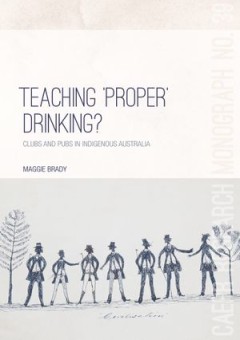
Teaching ‘Proper’ Drinking? Clubs and pubs in Indigenous Australia
"In Teaching ‘Proper’ Drinking?, the author brings together three fields of scholarship: socio-historical studies of alcohol, Australian Indigenous policy history and social enterprise studies. The case studies in the book offer the first detailed surveys of efforts to teach responsible drinking practices to Aboriginal people by installing canteens in remote communities, and of the purchase…
- Edition
- -
- ISBN/ISSN
- 9781760461577
- Collation
- -
- Series Title
- -
- Call Number
- -
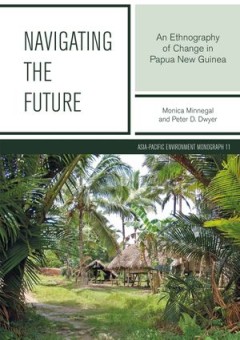
Navigating the Future: An Ethnography of Change in Papua New Guinea
Navigating the Future draws on long-term ethnographic fieldwork with Kubo people and their neighbours, in a remote area of Papua New Guinea, to explore how worlds are reconfigured as people become increasingly conscious of, and seek to draw into their own lives, wealth and power that had previously lain beyond their horizons. In the context of a major resource extraction project—the Papua New…
- Edition
- -
- ISBN/ISSN
- 9781760461232
- Collation
- -
- Series Title
- -
- Call Number
- 306 MIN n
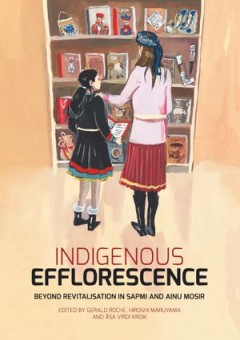
Indigenous Efflorescence: Beyond Revitalisation in Sapmi and Ainu Mosir
Indigenous efflorescence refers to the surprising economic prosperity, demographic increase and cultural renaissance currently found amongst many Indigenous communities around the world. This book moves beyond a more familiar focus on ‘revitalisation’ to situate these developments within their broader political and economic contexts. The materials in this volume also examine the everyday pr…
- Edition
- -
- ISBN/ISSN
- 9781760462628
- Collation
- -
- Series Title
- -
- Call Number
- 301 IND i

The autonomous life? Paradoxes of hierarchy and authority in the squatters m…
This book is an ethnographic study of the internal dynamics of a subcultural community that defines itself as a social movement. While the majority of scholarly studies on this movement focus on its official face, on its front stage, this book concerns itself with the ideological and practical paradoxes at work within the micro-social dynamics of the backstage, an area that has so far been negl…
- Edition
- -
- ISBN/ISSN
- 9781784997564
- Collation
- -
- Series Title
- -
- Call Number
- -
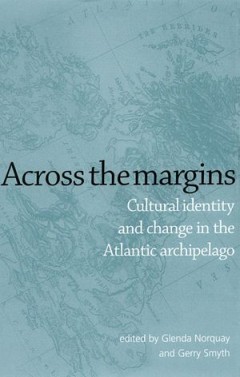
Across the margins Cultural identity and change in the Atlantic archipelago
Across the margins offers a comparative, theoretically informed analysis of the cultural formation of the Atlantic Archipelago. In its overall conception and in specific contributions (including an introductory essay), this collection demonstrates the benefits of working across the disciplines of history, geography, literature and cultural studies, but also presents new configurations of cultur…
- Edition
- -
- ISBN/ISSN
- 9780719057496
- Collation
- -
- Series Title
- -
- Call Number
- -

Encoding Race, Encoding Class Indian IT Workers in Berlin
In Encoding Race, Encoding Class Sareeta Amrute explores the work and private lives of highly skilled Indian IT coders in Berlin to reveal the oft-obscured realities of the embodied, raced, and classed nature of cognitive labor. In addition to conducting fieldwork and interviews in IT offices as well as analyzing political cartoons, advertisements, and reports on white-collar work, Amrute spent…
- Edition
- -
- ISBN/ISSN
- 9781478091875
- Collation
- -
- Series Title
- -
- Call Number
- -
 Computer Science, Information & General Works
Computer Science, Information & General Works  Philosophy & Psychology
Philosophy & Psychology  Religion
Religion  Social Sciences
Social Sciences  Language
Language  Pure Science
Pure Science  Applied Sciences
Applied Sciences  Art & Recreation
Art & Recreation  Literature
Literature  History & Geography
History & Geography